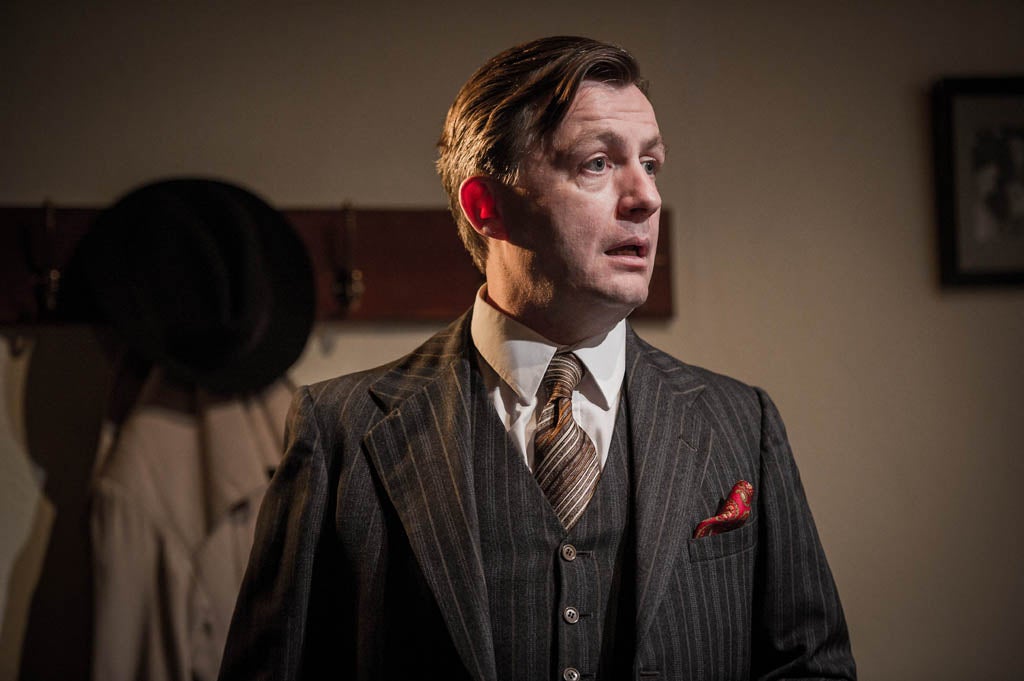
Your support helps us to tell the story
From reproductive rights to climate change to Big Tech, The Independent is on the ground when the story is developing. Whether it's investigating the financials of Elon Musk's pro-Trump PAC or producing our latest documentary, 'The A Word', which shines a light on the American women fighting for reproductive rights, we know how important it is to parse out the facts from the messaging.
At such a critical moment in US history, we need reporters on the ground. Your donation allows us to keep sending journalists to speak to both sides of the story.
The Independent is trusted by Americans across the entire political spectrum. And unlike many other quality news outlets, we choose not to lock Americans out of our reporting and analysis with paywalls. We believe quality journalism should be available to everyone, paid for by those who can afford it.
Your support makes all the difference.This J B Priestley play impressed the critics when it opened in 1935 but flopped after only a few weeks and has since sunk into near oblivion.
In Sam Yates's engaging and well-judged revival, it emerges as an intriguing period piece that speaks to our times in its tragicomic depiction of the anxieties, humour, despair and obstinate hopes of an age of recession.
The eponymous protagonist is a partner in a Holborn-based firm of aluminium importers which is losing orders and fighting for its life. As insolvency looms, the little office (a detailed, evocative set by David Woodhead – all crammed-in desks and cranky telephone arrangements) is increasingly invaded by desperate door-to-door salesmen (including Andrew Fallaize's particularly affecting ex-Air Force officer, now half-starved and reduced to flogging stationery) and by angry creditors.
When he eventually returns from a failed last-ditch business trip up north, the senior partner Murrison (a disturbingly haunted Jamie Newall) is in the grip of a paranoiac breakdown, a suicidal precursor of Arthur Miller's Willy Loman.
Priestley custom-built the part of Cornelius for Ralph Richardson, an actor who had a great gift for intimating an other-worldly dimension in ordinary men and who would go on to play the title roles in Johnson Over Jordan and An Inspector Calls.
In his superbly double-edged central performance, Alan Cox beautifully suggests both the jaunty down-to-earth decency and dutifulness and the romantic, imaginatively truanting streak in Cornelius who has never really believed in the capitalist system he has served (“a game of snakes and ladders – without the ladders”) and who boyishly dreams of searching for the “lost city of the Incas”.
The play never hardens into a socialist tract because Priestley is so adept at finding a saving eccentricity in people it would be easy to patronise as victimised dullards. The methodical old pen-pusher Biddle (endearingly played by Col Farrell) may be so chronically organised that he is even getting estimates for his own cremation, but he has survived his desiccating routine by investing numbers with human personalities, giving his job a touch of quixotic adventure.
True, there are stereotypes here (such as the plain, lovelorn devoted secretary) but when his unappeased yearning for Emily Barber's disarmingly pretty and plain-speaking typist triggers Vanya-esque feelings of futility in Cornelius, there is also a sub-Chekhovian sense of concurrent light-and-dark emotions as a window is opened onto the sound of the independent and therefore liberating laughter of strangers.
To 8 Sept; 0844 847 1652
Join our commenting forum
Join thought-provoking conversations, follow other Independent readers and see their replies
Comments